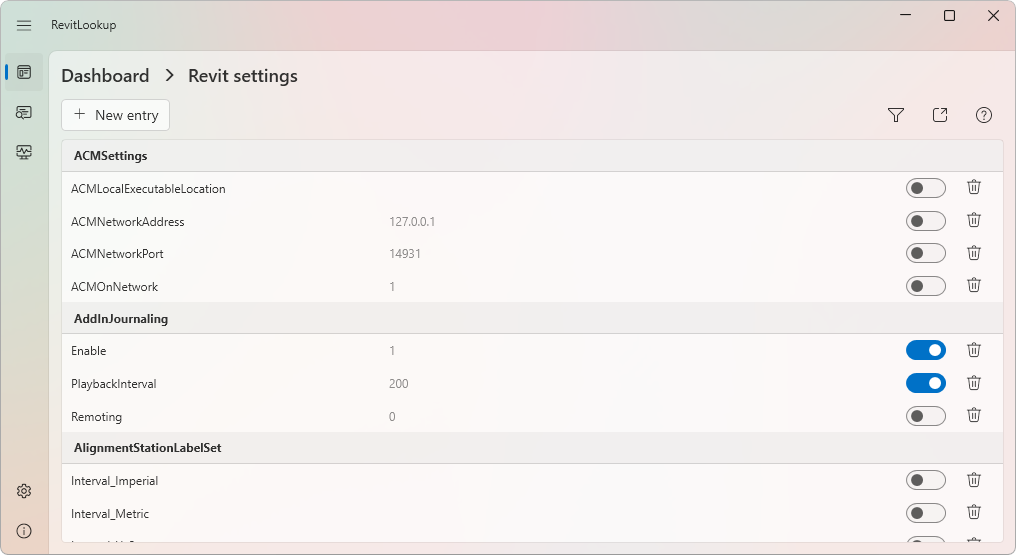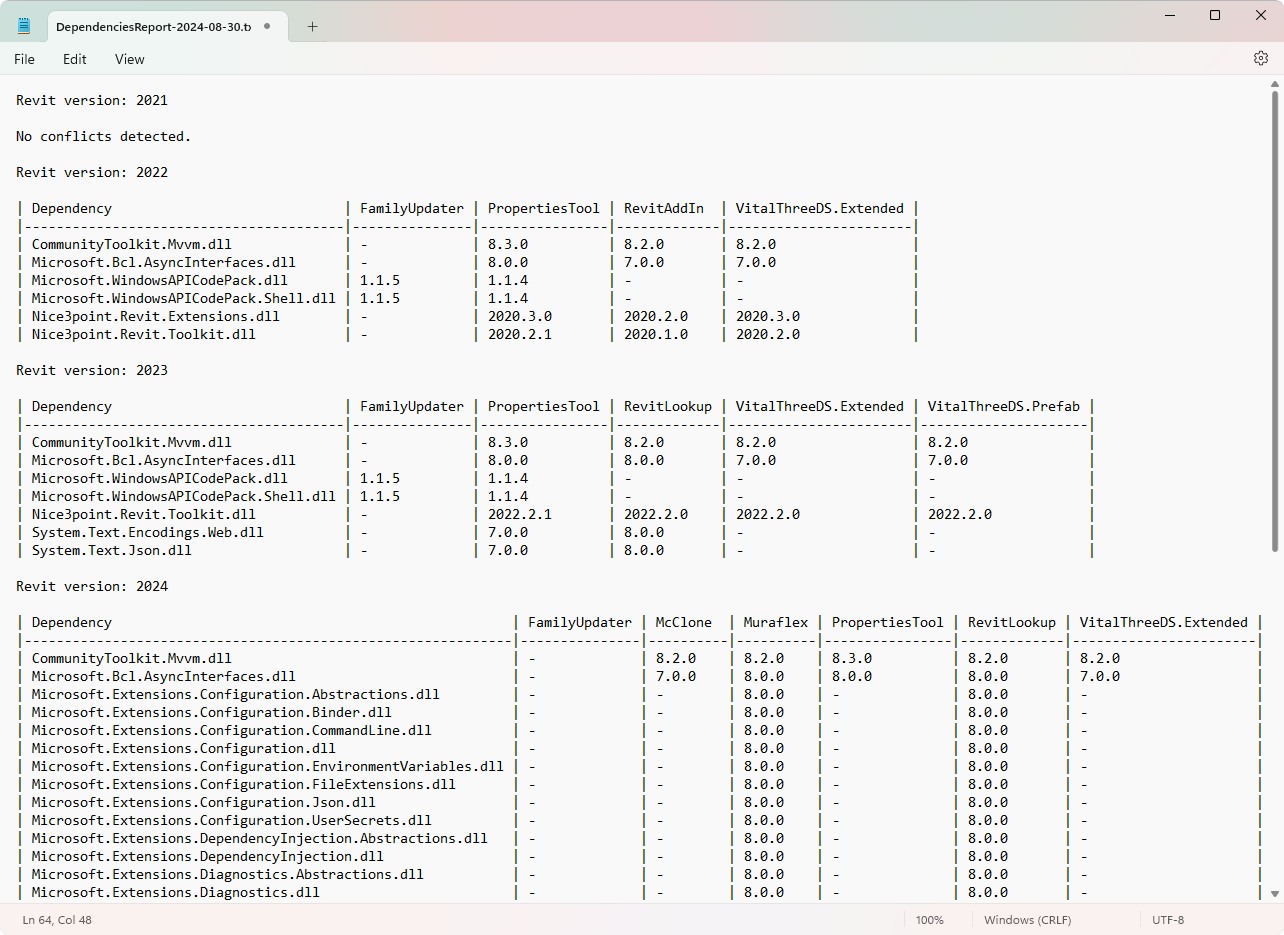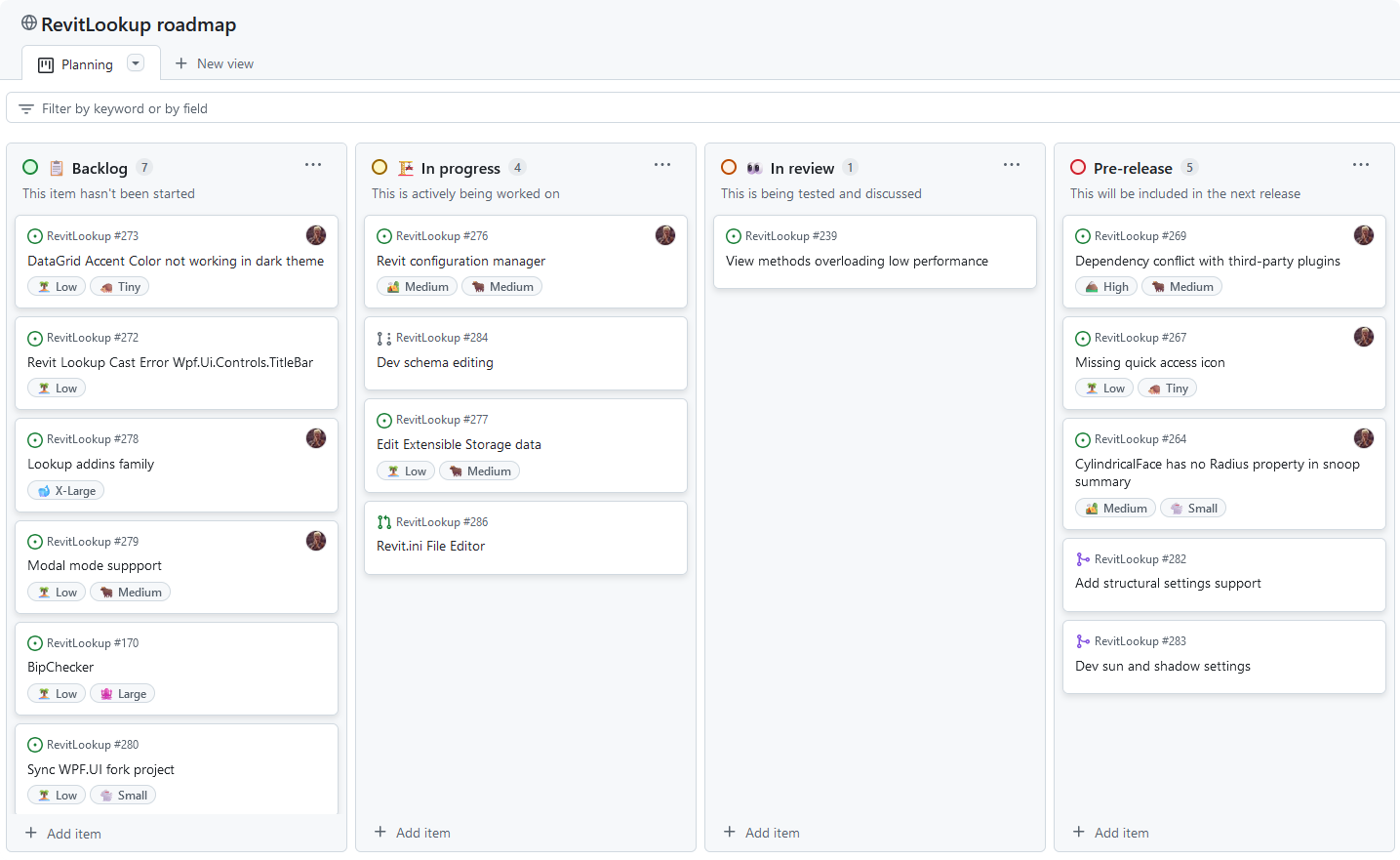RevitLookup 2025.0.9
A new version of RevitLookup is available, and AI influence observable:
RevitLookup 2025.0.9
Roman @Nice3point Karpovich, aka Роман Карпович, published RevitLookup release 2025.0.9 with important enhancements by himself, RichardPinka and SergeyNefyodov:
Revit.ini File Editor
The Revit.ini file is a key configuration file in Revit that stores settings related to user preferences, system behavior, and project defaults.
The Revit.ini File Editor provides a simple and efficient way to manage these settings without the need for manual editing. With this tool, users can quickly adjust Revit’s configurations to match project needs or personal preferences, making it an essential utility for both professionals and teams working with Revit.

This is our first public version, and we are excited for you to try it out for yourself! Make sure to file issues you encounter on our GitHub so we can continue to improve it. For more details, please refer to the:
Dependency Conflict Static Analyzer
Some users experience issues launching RevitLookup, often caused by conflicts with third-party plugins, cf., issue 269.
To help resolve these issues, we introduced new dependency reporting tools that allow you to analyze, identify and upgrade problematic plugins causing crashes:

Many thanks to @RichardPinka for testing tools in the discussion of issue 281.
Public RevitLookup Roadmap
Curious about what’s next? Keep up to date on the latest developments for RevitLookup and share your feedback.
Check out the Public RevitLookup Roadmap to see what’s coming up in future releases.

Other Improvements
New extensions by @SergeyNefyodov; type, name and short description:
- Pipe – HasOpenConnector – Checks if there is open piping connector for the pipe
- Family – FamilyCanConvertToFaceHostBased – Indicates whether the family can be converted to face host based
- Family – GetProfileSymbols – Gets the profile Family Symbols
- Document – GetLightFamily – Creates a light family object from the family document
- LightFamily – GetLightTypeName – Return the name for the light type
- LightFamily – GetLightType – Return a LightType object for the light type
- Application – GetMacroManager – Gets the Macro manager from the application
- Document – GetMacroManager – Gets the Macro manager from the document
New API support:
- CylindricalFace class support:
- Radius property support
- StructuralSettings class support by @SergeyNefyodov:
- GetStructuralSettings method support
- StructuralSettings class support by @SergeyNefyodov:
- GetActiveSunAndShadowSettings method support
- GetSunrise method support
- GetSunset method support
- GetSunset method support
- IsTimeIntervalValid method support
- IsAfterStartDateAndTime method support
- IsBeforeEndDateAndTime method support
- RevisionNumberingSequence class support by @SergeyNefyodov:
- GetAllRevisionNumberingSequences method support
- AnalyticalLinkType class support by @SergeyNefyodov:
- IsValidAnalyticalFixityState method support
- AreaVolumeSettings class support by @SergeyNefyodov:
- GetAreaVolumeSettings method support
- GetSpatialElementBoundaryLocation method support
New default settings:
Show Staticmembers enabled by defaultShow Eventsenabled by defaultShow Extensionsenabled by default
Bugs:
Miscellaneous:
- Updated Contributing guide
- Added new GitHub issue templates
- Full changelog
- RevitLookup versioning
RevitLookup 2025.0.10
Shortly after, Roman went on to publish RevitLookup 2025.0.10:
- Fixed placeholder for the dark theme
- Fixed the Revit.ini editor filter button name
- Fixed the Revit.ini editor filter placeholder
- Disabled the
Visual.Entermethod - Suppressed
GenericHoststartup messages by @Nefarion - Full changelog
- RevitLookup versioning
LLMs Influence Academic Language
In a different vein, looking at AI-related news, according to scientific studies, LLMs are already influencing human academic language, cf., The Impact of Large Language Models in Academia: from Writing to Speaking. Less scientifically rigorous, similar results are also raised in the El Pais article stating that excessive use of words like ‘commendable’ and ‘meticulous’ suggests ChatGPT has been used in thousands of scientific studies.